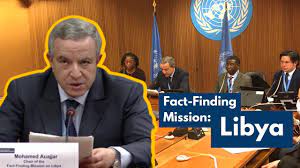
This year passes for teachers of Libya, like other years, while they are in dire need of the rights that they have been calling for to enable them to fulfil the duties they are entrusted with. Their situation has been has been exacerbated by the ongoing conflicts, State institutional divisions, and the suspension of the educational process due to the Corona pandemic, which has imposed new conditions and brought new challenges which never experienced by those in charge of the educational institutions nor the teachers themselves.
Monday, October 5th, marks the World Teachers’ Day[i], adopted by the 27th Session of the General Conference of UNESCO[ii] in 1993, organized annually since 1994 to commemorate the anniversary of the adoption of the 1966 International Labour Organization (ILO)/UNESCO Recommendation concerning the Status of Teachers. This Recommendation sets benchmarks regarding the rights and responsibilities of teachers and standards for their initial preparation and further education, recruitment, employment, and teaching and learning conditions.
The COVID-19 pandemic has significantly added to the challenges faced by already over-extended[iii] education systems throughout the world[iv]. It is no exaggeration to say that the world is at a crossroads and, now more than ever, we must work with teachers to protect the right to education and guide it into the unfolding landscape brought about by the pandemic. UNESCO decided that the theme of the 2020 celebration of the International Day of Teachers will be ” Teachers: Leading in crisis, reimagining the future “. The teacher leadership in relation to crisis responses is not just timely, but critical in terms of the contributions teachers have made to provide remote learning, support vulnerable populations, re-open schools, and ensure that learning gaps have been mitigated.
In response to the COVID-19 crisis, the International Task Force on Teachers for Education 2030 called[v] on all governments, education providers and funders – public and private – to recognise the critical roles that teachers play in the COVID-19 response and recovery. In particular, the Teacher Task Force called on all relevant partners to: preserve employment and wages for workers in the education sector; prioritise teachers’ and learners’ health, safety, and well-being; include teachers in developing COVID-19 education responses; provide adequate professional support and training; put equity at the heart of education responses; and include teachers in aid responses especially for the world’s poorest countries.
This is at the global level, as for Libya, all the attempts put forward by educational institutions have not paid off. Distant learning projects and recorded lessons, sponsored by UNICEF, did not succeed due to the continuous power outages and poor internet services in Libya, left students being unable to follow the lessons which were broadcasted the Ministry of Education on television channels, or posted on sites and social media networks.
This year, in view of the current situation, the celebrations will take place online. As well as the World Teachers’ Day Opening Ceremony and UNESCO-Hamdan Prize Awards Ceremony on 5 October, and the Closing Ceremony on 12 October, there will be a series of national, regional, and global events throughout the week.
[i] United Nations Educational, Scientific and Cultural Organization (UNESCO): “World Teachers’ Day, 5th October”
[ii] UNESCO: “UNESCO, General Conference, 27th Session Resolution”, 1993.
[iii] By mid-April 2020, 94 per cent of learners worldwide were affected by the pandemic, representing 1.58 billion children and youth, from pre-primary to higher education, in 200 countries. The ability to respond to school closures changes dramatically with level of development: for instance, during the second quarter 2020, 86 per cent of children in primary education have been effectively out of school in countries with low human development. United Nations: “Policy Brief: Education during COVID-19 and beyond”, August 2020.
[iv] Worldwide, there is a shortage of teachers, and attrition rates are rising rapidly, due in part to precarious employment and scarce opportunities for continuous professional development. Furthermore, there is a lack of resources for children with special education needs and disabilities, refugees and multilingual pupils. The figures given by the UNESCO Institute for Statistics (UIS) indicate that “the world needs almost 69 million new teachers to meet the Education 2030 Agenda. Global inequalities could directly increase, as 70% of sub-Saharan countries face acute shortages of teachers, rising to 90% at secondary level”, Joint Message from Director-General of UNESCO and other organizations.
[v] The International Task Force on Teachers for Education 2030: “Response to the COVID-19 Outbreak, Call for Action on Teachers”, March 27, 2020.




